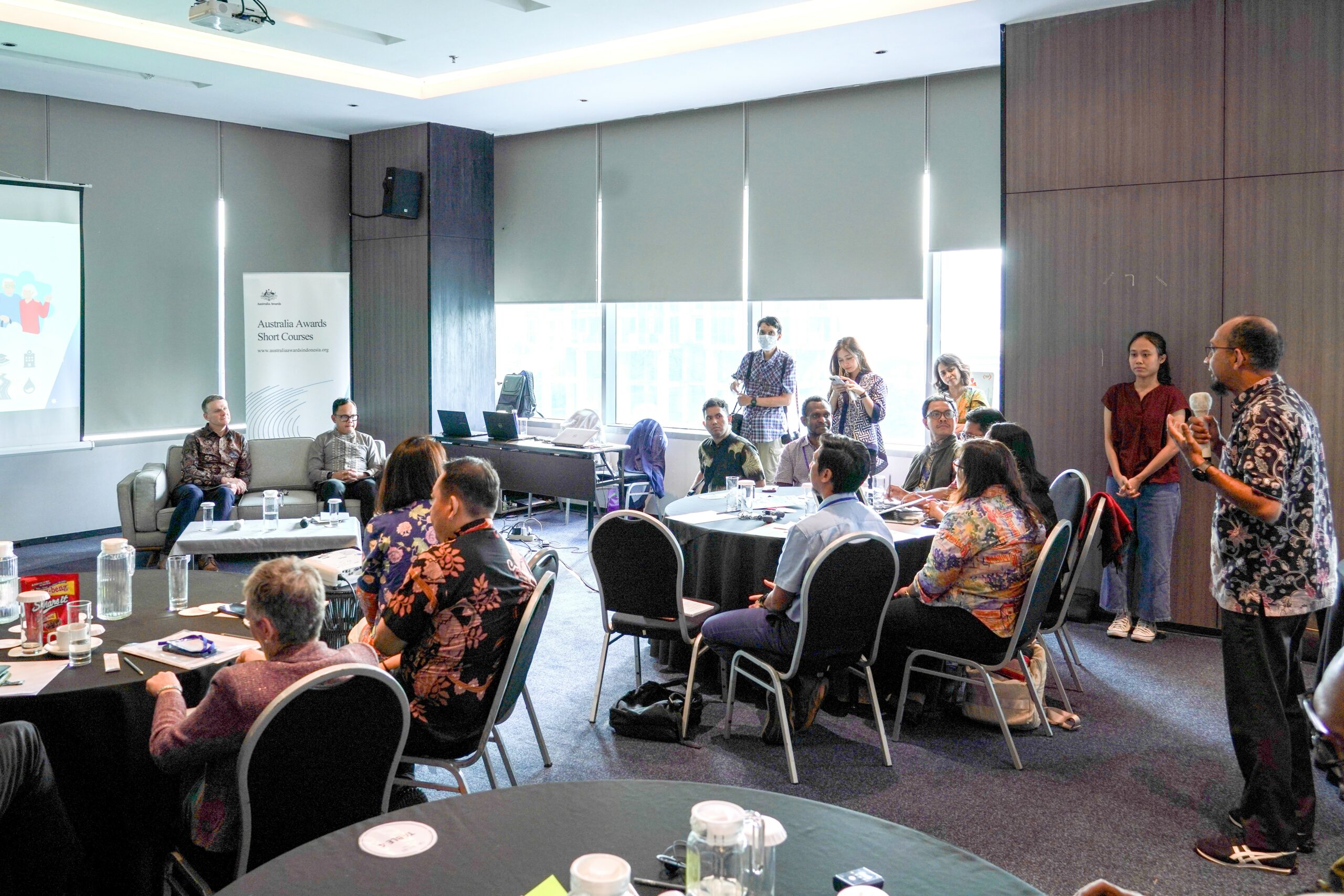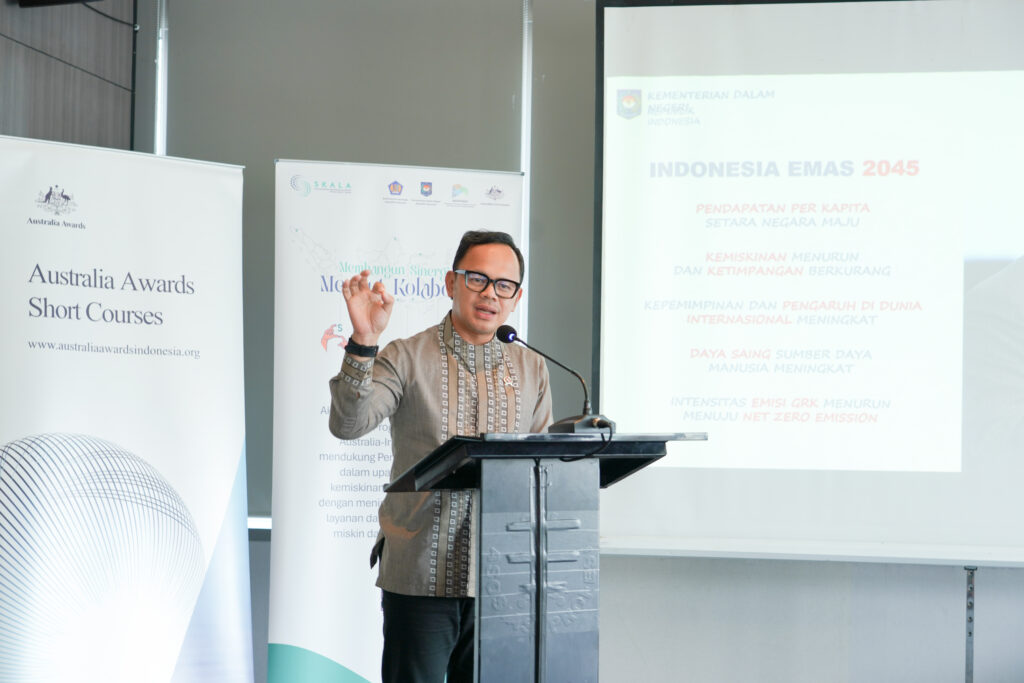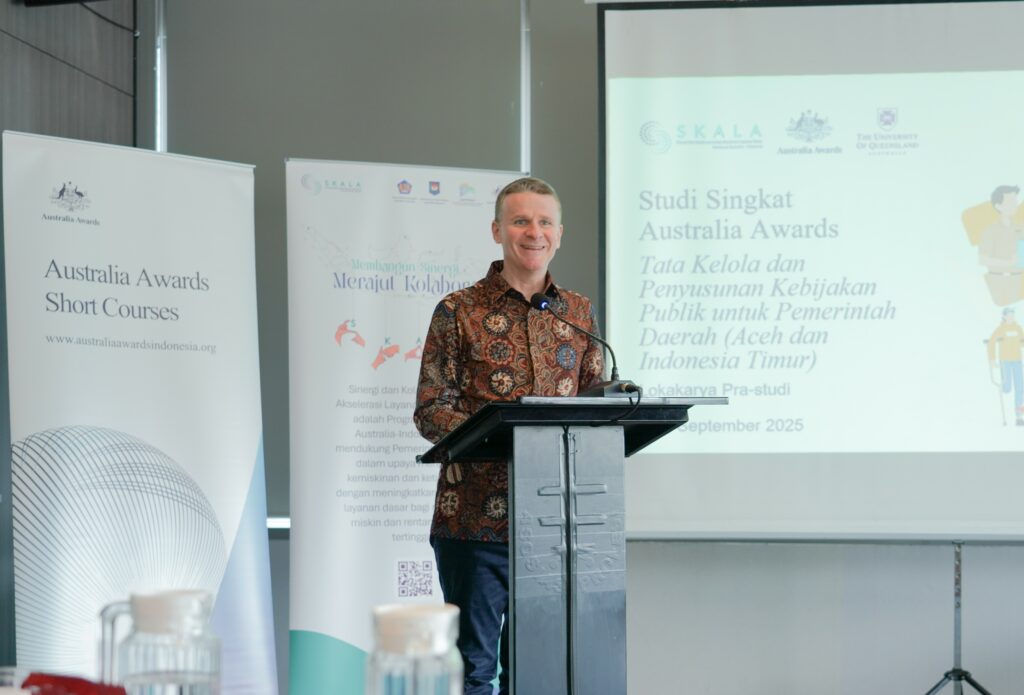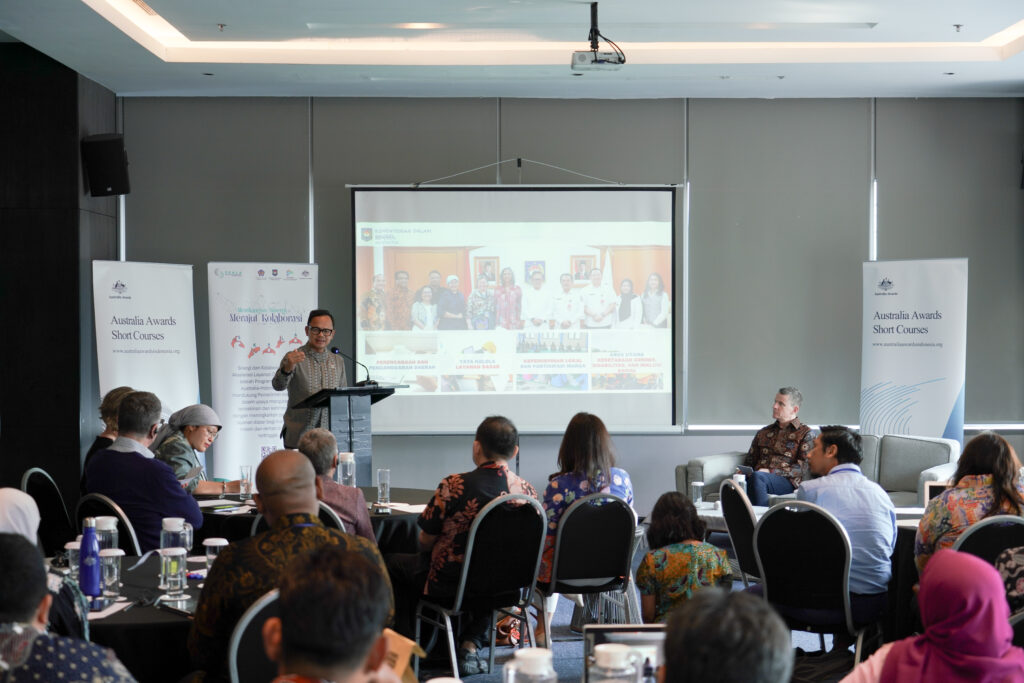AAI and SKALA Host Pre-Course Workshop on Public Governance for Subnational Governments in Aceh and Eastern Indonesia

Jakarta, 2–4 September 2025 – Australia Awards in Indonesia (AAI), in partnership with SKALA – the Australia–Indonesia Partnership Program for Strengthening Basic Services – hosted a three-day pre-course workshop at Hotel Mercure Gatot Subroto, Jakarta. The workshop is part of the Short Course “Governance and Public Policy Making for Subnational Governments (Aceh and Eastern Indonesia)”, designed to strengthen the capacity of local governments in Aceh and Eastern Indonesia in public governance and policymaking.
The program was designed to enhance participants’ knowledge and skills in planning, budgeting and developing more inclusive public policy. Key areas of focus included strengthening basic services, advancing gender equality, disability and social inclusion (GEDSI), and harnessing digitalisation to support better governance. Two distinguished Australian experts contributed to the pre-course: Professor Ken Smith, an academic and practitioner with extensive government experience, and Rachel Nolan, former Queensland Minister for Transport, Finance, Natural Resources and the Arts.
A total of 27 participants joined the workshop, including officials from the Ministry of Home Affairs, the Ministry of National Development Planning (Bappenas), and the Ministry of Finance. Participants also included representatives from provincial governments across Aceh, East and West Nusa Tenggara, Maluku, Gorontalo, North Kalimantan, and the six Papuan provinces: Papua, Papua Barat, Papua Tengah, Papua Selatan, Papua Pegunungan and Papua Barat Daya. The cross-regional and cross-ministerial participation helped strengthen policy alignment between national and subnational governments, while also encouraging peer learning and exchange.
Over three days, participants engaged in panel discussions, workshops and presentations on inclusive governance. Key sessions included:
- Local government priorities in meeting minimum service standards in education, health and basic infrastructure.
- A panel on ‘Realising Inclusive Public Services,’ which highlighted how GEDSI principles can be applied in delivering government services.
- Insights on the Australian system of government and its relevance to Indonesia’s context.
- Initial presentations of participants’ Award Projects – individual or group initiatives to be further developed during training in Australia and implemented upon return.
The workshop concluded with remarks from Australia’s Ambassador to Indonesia, Rob Brazier, and Indonesia’s Vice Minister of Home Affairs, Bima Arya Sugiarto.
Ambassador Brazier underlined the importance of the Australia–Indonesia partnership in building the capacity of subnational governments. He reaffirmed Australia’s commitment to supporting Indonesia’s efforts to strengthen inclusive basic services, noting that the program provides a valuable opportunity for participants to learn from Australia’s experience and adapt best practices for their local contexts.
Vice Minister Bima Arya encouraged participants to make the most of the learning opportunity. He highlighted the importance of improving planning and budgeting skills to strengthen subnational fiscal capacity – a core objective of Indonesia’s decentralisation. He also stressed the need for local officials to improve service delivery and bring government closer to communities. The short course, he noted, is not only a learning platform but also a means to build networks with counterparts in Australia and across Indonesia.
This pre-course workshop marked the first phase of the program. In October 2025, participants will travel to Australia for two weeks of intensive training, including field visits and engagements with experts at government institutions in Canberra, Brisbane and Sydney. In January 2026, participants will reconvene for a post-course workshop to present the outcomes of their Award Project implementation.
Through this ongoing series, AAI and SKALA aim to equip participants to become agents of change in their regions – strengthening transparent and accountable governance, while ensuring more inclusive and sustainable development.









